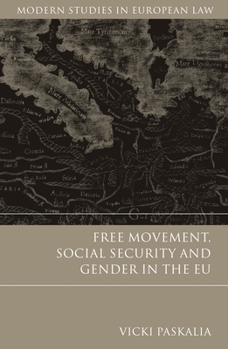Free Movement, Social Security and Gender in the EU
(Part of the Modern Studies in European Law Series)
This work examines the system of co-ordination of national social security laws in the European Union from a gender perspective. The central question that it raises concerns the level of social security protection enjoyed by women moving throughout the Union in cases of work interruption or marriage dissolution. Women's social security protection has traditionally been based on two criteria, namely economic activity and family/marriage. Work interruptions, in particular for child-rearing, challenge the invocation of economic activity as an effective basis for social security rights. Changing social and family conditions, including the emergence of atypical relationships and increasing divorce rates, challenge the criterion of family/marriage. Efforts have been made within the framework of the national systems of the Member States to address these challenges, often unsuccessfully. So, how successful has the European system of co-ordination, the aim of which is to provide a sufficient level of protection to migrant workers and their families, been in addressing these challenges?
The book contains comprehensive discussion of the phenomenon and legal institution of social security, as well as a thorough analysis of the current state of European Community law concerning co-ordination, with a particular focus on gender. It identifies several problematic areas where solutions must be worked out and action taken. The book fills a gap in the legal literature on the social security field and will appeal to those with an interest in social security, including academics, policy-makers and practitioners.
Related Subjects
Law




